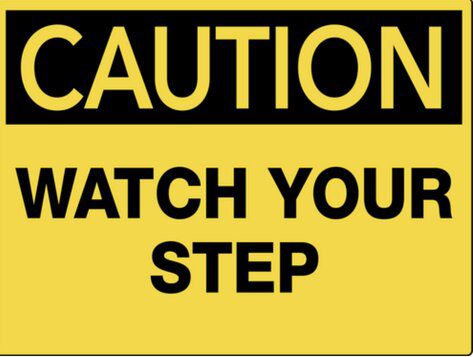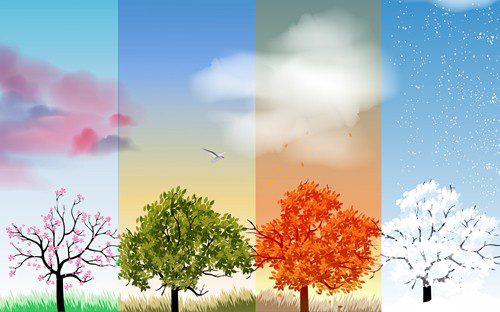There’s no such thing as bad weather, only unsuitable clothing.
The Scandinavians have a saying “There’s no such thing as bad weather, only unsuitable clothing”. There is nothing we can do about the weather, but we can surely control what we wear in the weather. Complaining about the weather or the challenges that we deal with in life would not change the situation, the only way to change anything is to take action; nothing moves until you move. As author, Jim Rohn often said “Don’t wish it was easier wish you were better. Don’t wish for less problems wish for more skills. Don’t wish for less challenge wish for more wisdom”. Life is going to happen to us all at some point, whatever will go wrong will eventually go wrong. In the words, of the British writer Vivien Greene “Life is not about waiting for the storms to pass. It’s about learning how to dance in the rain.”
I moved to Canada five years ago and I can attest to what it means to stay in a very cold region of the world. The temperature could range from −15 °C (5 °F), to as low as −40 °C (−40 °F). For every weather, there is a particular clothing gear for the temperature. The challenge I think most of us deal with is, that we wear clothing that is not appropriate for the weather, hence we feel cold. If you wear, a jacket that is not built for the weather you are presently in, you are going to feel the chill of the weather. Just like life, the key to navigating the winters of life and the bitter side of life is to stay prepared and radically accept whatever happens to you in life. Get the message or you get stuck with the mess, learn the lessons or it will lessen you and get better and not bitter. This too shall pass, every wound eventually heals and you are going to be just fine.
The Changing Seasons of Life
In his thought-provoking book, The Seasons of Life, author, and motivational speaker Jim Rohn writes about the constancy of the changing seasons of life. He noted:
“For all of us, the only constant factor in life is our feelings and attitudes toward life. A major challenge faced by us all is that we learn to experience the changing of life’s cycles without being changed by them. To make a constant and conscious effort to improve ourselves in the face of changing circumstances is to assure a tolerance for the winters of life’s events, and to permit ourselves the full enjoyment of the blessings of life’s harvest come the autumn.”
The first great lesson of life to learn is that winter will always come; not only in the winter of cold, and wind, and ice, and snow, but the human winters of despair and loneliness, or disappointment, or tragedy. It is winter when prayers go unanswered, or when the acts of our children leave us shaken and stunned. It is winter when the economy turns against us, or when creditors come after us. It is winter when competition threatens, or when a friend takes advantage. Winter comes in many forms, and at any time, both to the planter of crops as well as to the person in business, or even to our personal lives.
The arrival of winter finds us in one of two categories: Either we are prepared or we are unprepared.
To those who are prepared, who have planted abundantly in the spring, guarded their crops carefully during the summer, and harvested massively during the fall, winter can be yet another season of opportunity. It can be a time for reading, a time for planning, a time for gathering our strength for the coming spring, and a time for taking comfortable shelter. It can be a time of great enjoyment, a time to be shared with those we love, and with those with whom we have labored.
Winter is a time for rest, but not excessive rest. It is a time to enjoy the fruits of our labors, but not a time for gluttony. It is a time for warm conversations, but not a time for complacency. It is a time to be proud, but not a time to be egotistical.
To those who are unprepared, the arrival of winter is a time for regret and a time for sorrow. Having lacked the willingness to pay the pain of earlier discipline, we now pay the heavier pain of regret. The burdens and chains of discipline would seem insignificant when compared to the massive weights and cumbersome restraints of regret.
To the prepared, winter is springtime in yet another form, but to those who are ill-prepared, winter’s arrival is full of horror and uncertainty. Love and harmony give way to accusations and anger.

Keep Moving and Watch your feet
It was May 2008, and the stock market in the U.S. was in free fall. Crashing home prices were starting to tank the economy. There was talk of a banking crisis. Investors everywhere were scared. Mellody Hobson was the president of Ariel Investments, the largest minority-owned investment firm in the U.S., managing the pensions and retirement funds for thousands of people. Ariel was founded by John Rogers Jr., with about $11 billion of assets under management (AUM) and with pressure from institutional investors, Rogers Jr. and Hubson were feeling the heat as clients kept firing Ariel every day by moving their money.
In a snowstorm, when you’re trying to get from one place to another place, you never look up at the storm. You watch your feet. If you look up at the storm you will fall.’
By 2004, Ariel’s assets hit a peak of $21 billion, up from about $8 billion at the start of 2002. A $10,000 investment in its flagship Ariel Fund at its inception in 1986 was worth $116,143 by the end of 2004, compared with just $75,477 if it was invested in the S&P 500® Index. 1 Ariel’s flagship fund fell as much as 50% in 2008 and major clients pulled their funds from the firm. In 2004, Ariel’s assets under management peaked at $21 billion and fell to $3.3 billion in 2009. The company had to lay off 20% of its 100-person staff team.
Ariel’s period of outperformance ended in 2005 after investments in newspaper companies (Lee Enterprises, McClatchy, Gannett) fell as the digital transformation away from legacy media accelerated. As a result, the stocks suffered dramatically, in some cases going practically bankrupt. 1
Early one morning during the crisis, global markets were plunging. Hobson doesn’t usually focus on day-to-day fluctuations, but this day she was staring at the TV, hyperventilating. She and Lucas always talk at 7:30 A.M. Chicago time when they’re in different cities. “George said, ‘What do you know better than anyone else because you live in Chicago?’ ” she recalls. “I said, ‘George, I have no idea. I’m not interested in mind games.’ He said, ‘The one thing you have in Chicago is snowstorms. What do you know about snowstorms? In a snowstorm, when you’re trying to get from one place to another place, you never look up at the storm. You watch your feet. If you look up at the storm you will fall.’ ” Hobson says, “I went to work, and thought, We must stay focused and watch our feet. We must just do the work.”
Watch your feet, because if you don’t watch your feet, you fall.” That meant handling what you can control and ignoring the rest.
Meditation
- Daily Calm with Tamara Levitt – Compass
- Throughout this life, it is necessary to have certain expectations. Ideally, we hold expectations as a compass that points the way but not as a map that dictates every step of our journey. It is healthy to have an idea of where we are headed but through the practice of mindfulness, we learn not to form rigid expectations of what our experience will be on this path. We want to meet whatever we encounter with openness but not compare it with what we expect to find.
Blessed is he who expects nothing, for he shall never be disappointed. – Alexander Pope
- Daily Jay with Jay Shetty – The Profit of Play
- As we get older we lose touch with our sense of wonder and play. Playfulness is not a characteristic that you are born with, it can be consciously cultivated and once it’s lost it can be found. Play doesn’t have to be performative, it can be private.
- Allow yourself to be silly and spontaneous, look for laughter, fun and stop taking life too seriously.
Podcast
- Make Learning As Addictive As Social Media – Quickly Make Progress At Anything | Cal Newport
- World Leading Psychologist ON Why You’re FAILING and Why Discomfort Will UNLOCK Success | Adam Grant
All the best in your quest to get better. Don’t Settle: Live with Passion.



Comments are closed.